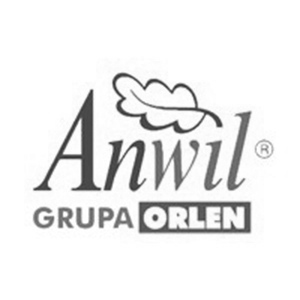Company profile:
A global leader in the production of packaging, paper and cellulose.
The Customer's needs:
Process of implementation:
The implementation was preceded by a suitable analysis which identified the Customer's needs and the best solutions. The purpose of the implementation was to simplify processes, distribute works in an effective way and increase the supplies of raw materials. We have implemented modules responsible for auctions, supply notification, management of events, contracts and schedules. Implemented elements also include Extranet, Intranet with calculators (used during the registration of measurements and verifying whether the vehicles registering at the entrance gate have not exceeded allowed total weight). Our solutions have been integrated with the ERP system (SAP).
Effects:
Over 800 users, from the Company's employees to external providers, take advantage of the implemented solutions.
IPSEN
Company profile:
A provider of international transport services in terms of road, maritime and air transport.
The Customer's needs:
A system managing road orders in terms of transport and finance.
Transport:
Finance:
Process of implementation:
The implementation in all Polish branches of the company was smooth – two months passed from the implementation analysis to the go-live phase.
As a result of the analysis, specifications and specific needs were determined, on whose basis an installation prototype and a test solution were prepared. The finishing touches were put after a month of joint work – at the final stage, workshops and training courses were provided to employees. The go-live stage started with the assistance of the employees of Comp-Win.
Effects:
Profil Firmy:
Jedna z wiodących firm produkcyjnych z branży chemicznej, działająca na terenie Polski oraz Unii Europejskiej. Wdrożenie rozwiązań firmy Comp-Win zmniejszyło koszty przewozów o 80 mln zł rocznie!
Diagnoza i potrzeby Klienta:
Klient potrzebował systemu, który standaryzowałoby, wspomagał i automatyzował procedury transportowe. Ważna była optymalizacja kosztów magazynowania i logistyki, a także czasu pracy poświęcanego na realizację zadań w tych obszarach.
Klient potrzebował wsparcia w szybkim i właściwym procesie decyzyjnym w zakresie wyboru najkorzystniejszej opcji współpracy z przewoźnikami, a w dalszej kolejności przekazanie przewoźnikom odpowiedzialności za rozliczenia usług transportowych.
Wdrożone funkcjonalności:
Wdrożyliśmy System Transportowy składający się z wielu indywidualnie dobranych modułów, przez co dostosowaliśmy rozwiązanie całkowicie do potrzeb organizacyjnych Firmy. Wdrożyliśmy moduł aukcyjny, zarządzania spedycją drogową i łańcuchem dostaw oraz do zarządzania logistyką na terenie zakładu. Ponadto wdrożyliśmy Extranet oraz moduł optymalizujący rozliczania transportów. Całość rozwiązań zintegrowaliśmy z systemem IFS, dzięki czemu pracownicy odnajdują wszystkie informacje w jednym systemie – dane nie są rozproszone. Ułatwiliśmy w ten sposób raportowanie i analizowanie danych, co jest szczególnie istotne z perspektywy zarządczej.
Jednym z głównych celów było maksymalne uproszczenie i zautomatyzowanie procesów. Dzięki integracji z IFS System Transportowy automatycznie tworzy zlecenia przewozowe, a na ich podstawie generuje joby (jazdy). Natomiast na podstawie zleceń zakupu z IFS generują się zlecenia transportowe. Zestandaryzowaliśmy powtarzalne i nieskomplikowane czynności i ograniczyliśmy do minimum aktywność pracowników w powyższym zakresie. Zredukowaliśmy maksymalnie czas, który pracownicy poświęcali na planowanie transportów – obecnie kilkaset transportów planowanych jest w ramach 3/4 etatu.
Zadbaliśmy też o to, by zautomatyzować naliczanie kosztów transportu, a także by zwiększyć efektywność współpracy między Klientem a przewoźnikami. Do tego celu wykorzystaliśmy Extranet, w którym przewoźnicy samodzielnie alokują faktury kosztowe i wprowadzają dane transportowe. To rozwiązanie, podobnie jak automatyzacja, zoptymalizowało pracę pracowników Klienta. Wpłynęło także na transparentność wspólnych działań Klienta i przewoźników.
Ułatwiliśmy proces wyboru dostawców usług poprzez wdrożenie modułu aukcyjnego – dzięki temu przy niskich kosztach nasz Klient organizuje aukcje (niektóre aukcje są całkowicie zautomatyzowane). Narzędzie pozwala mu sprawnie przeprowadzać negocjacje, także warunków pozacenowych. Narzędzie do zarządzania cennikami i kontraktami minimalizuje koszty transportu i ułatwia podejmowanie trafnych decyzji.
Poprawiliśmy komunikację między Klientem a kierowcami. W określonych sytuacjach kierowcy otrzymują automatyczne wiadomości sms, dzięki czemu zarówno kierowcy i Klient działają efektywniej, nie tracąc czasu na zbędne telefony czy wiadomości e-mail. Na efektywność współpracy wpłynęło też wdrożenie modułu rejestrującego dostarczone przesyłki
Efekt:
Dzięki wdrożonemu rozwiązaniu cały proces obsługi transportu oraz rozliczania kosztów odbywa się w jednym systemie, a wielopłaszczyznowa integracja Systemu Transportowego z systemem IFS optymalizuje czas przeznaczony na wprowadzanie, czy generowanie danych – integracja umożliwia symetryczną wymianę danych między systemami. Automatyczne tworzenie dokumentów i spraw, a także przeniesienie ciężaru rozliczeń formalnych na dostawców usług transportowych pozwoliło oddelegować pracowników do wykonywania innych wartościowych zadań, natomiast automatyczne naliczanie kosztów oraz moduł aukcyjny, a także rozbudowana platforma raportowa pomagają w sprawniejszym zarządzaniu i planowaniu wydatków.
Z wdrożonego rozwiązania korzysta ponad 100 użytkowników zarówno w Polsce, jak i zagranicą. System STS zoptymalizował koszty przewozów o 80 mln. zł rocznie!
Synthos
Company profile:
One of leading production companies in the chemical industry, operating in Poland and in the European Union.
The Customer's needs:
Process of implementation:
As a response to the Customer's needs, tailored modules have been implemented, which include modules responsible for auctions, road freight management and the management of logistics within the facility. We have implemented Extranet and optimised transport settlements. The whole system has been integrated with the Customer's ERP.
Effects:
Over 100 users, both in Poland and abroad, use the solution we have implemented. The Optilo system has optimised annual transport costs by PLN 80m! (http://www.computerworld.pl/news/384139/Znamy.finalistow.konkursu.Lider.Informatyki.2012.html)





